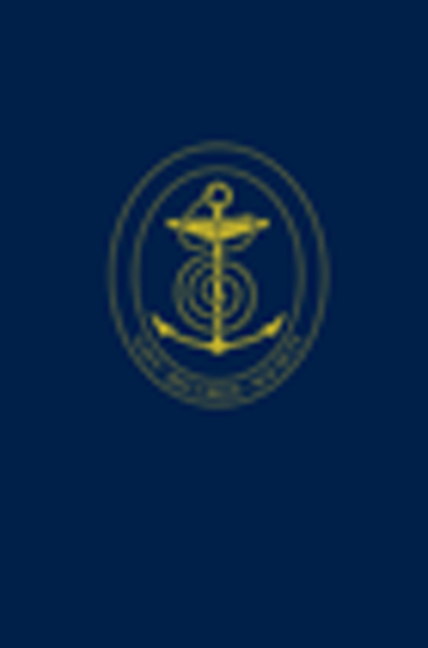 The Durham Papers
The Durham Papers Book contents
- Frontmatter
- Miscellaneous Frontmatter
- Dedication
- Contents
- General Introduction
- Part I From Acting Lieutenant to Master and Commander, 1781–1790
- Part II Sloop Commander, 1793
- Part III Frigate Captain, 1793–1802
- Part IV Ship-of-the-Line Captain, 1803–1810
- Part V Flag-Officer, 1810–1813
- Part VI Commander-in-Chief, Leeward Islands, 1813–1816
- Part VII Lowland Laird, and Commander-in-Chief, Portsmouth, 1836–1839
- Part VIII Epilogue
- Sources and Documents
- Index
- Miscellaneous Endmatter
Part VIII - Epilogue
Published online by Cambridge University Press: 04 May 2024
- Frontmatter
- Miscellaneous Frontmatter
- Dedication
- Contents
- General Introduction
- Part I From Acting Lieutenant to Master and Commander, 1781–1790
- Part II Sloop Commander, 1793
- Part III Frigate Captain, 1793–1802
- Part IV Ship-of-the-Line Captain, 1803–1810
- Part V Flag-Officer, 1810–1813
- Part VI Commander-in-Chief, Leeward Islands, 1813–1816
- Part VII Lowland Laird, and Commander-in-Chief, Portsmouth, 1836–1839
- Part VIII Epilogue
- Sources and Documents
- Index
- Miscellaneous Endmatter
Summary
When Durham’s tenure as port admiral at Portsmouth was drawing to its close, The Times (11 January 1839) reproduced a report from the Edinburgh Evening Post, which in an attack on ‘the Minto clique’ stated that Charles Elphinstone Fleeming was expected to relieve him, and had eyed that plum command for some time. ‘The authority of Admiral Fleming [sic] on all points connected with the present administration of the navy is indeed beneath contempt,’ the report stated. ‘He is a mere tool of the Mintos, with which grasping family he is connected through his relationship to Admiral Adam.’ Fleeming did indeed succeed Durham – but was himself replaced in November 1839 by Sir Edward Codrington. The comparatively undistinguished but inordinately favoured Fleeming, who was Lord Keith’s nephew and had been port-admiral at Sheerness earlier in the decade, was with blatant political partiality plucked from the Portsmouth posting to fill what was widely regarded as the most desirable of shore appointments, the governor-generalship of Greenwich Hospital, which had the advantage of life tenure. That he was selected to replace in ‘the almost consecrated post’ Vice-Admiral Sir Thomas Hardy, who had died in September, sparked resentment and outrage – hence the remark in [928], written by the husband of yet another of the Murray siblings, Marianne. The widespread view was that one of ‘a galaxy of glorious names’, admirals ‘prominent in the public eye and estimation’ – an officer, we may suppose, such as Durham – should have succeeded Nelson’s captain.
From the cessation of his Portsmouth command onwards, references to Durham in The Times hint at his continuing activity: sitting on the committee of the Nelson Memorial under the chairmanship of the Marquis of Anglesey (The Times, 3 June 1839); attending the annual Navy Club dinner for the First Lord of the Admiralty, the Earl of Haddington, at the Thatched House Tavern, St. James’s Street, not far from his Hill Street home (The Times, 2 July 1842); introducing his great-nephew, Lieutenant Alexander Murray, to Prince Albert at a levée at St James’s Palace in June 1843 (The Times, 22 June 1843); hosting the Duke of Bordeaux at Fordel that autumn (The Times, 21 Ocober 1843); and subscribing to the fund, chaired by Sir Edward Codrington, for a dinner in Trafalgar Square for Greenwich pensioners (The Times, 2 August 1844).
- Type
- Chapter
- Information
- The Durham PapersSelections from the Papers of Admiral Sir Philip Charles Henderson Calderwood Durham G. C. B. (1763-1845), pp. 505 - 516Publisher: Boydell & BrewerFirst published in: 2024
